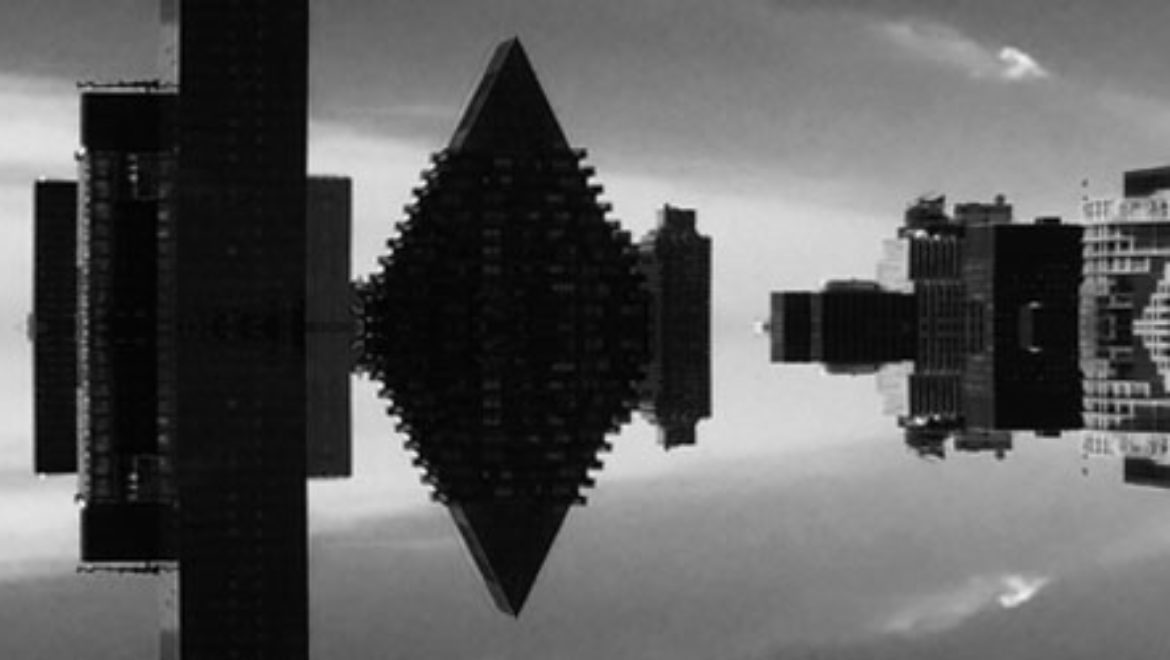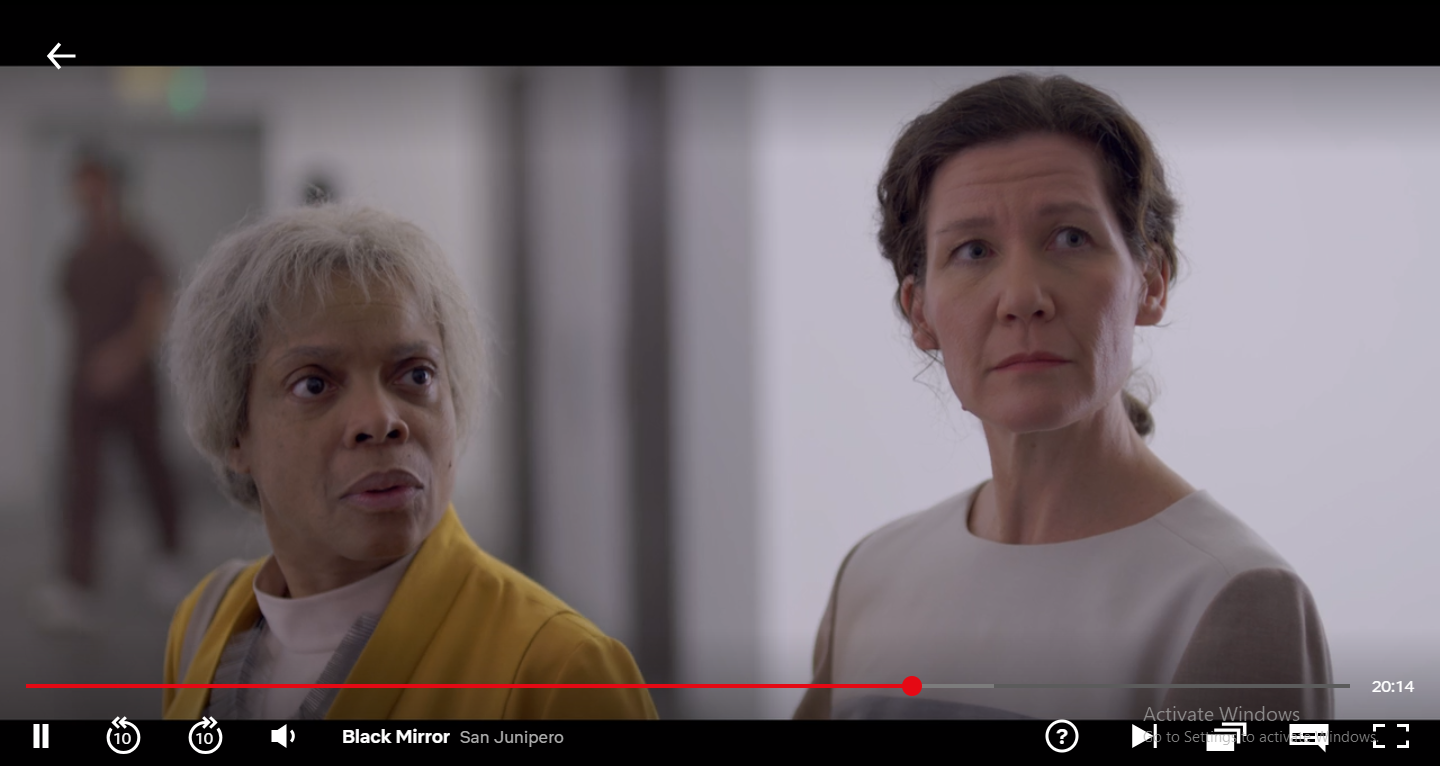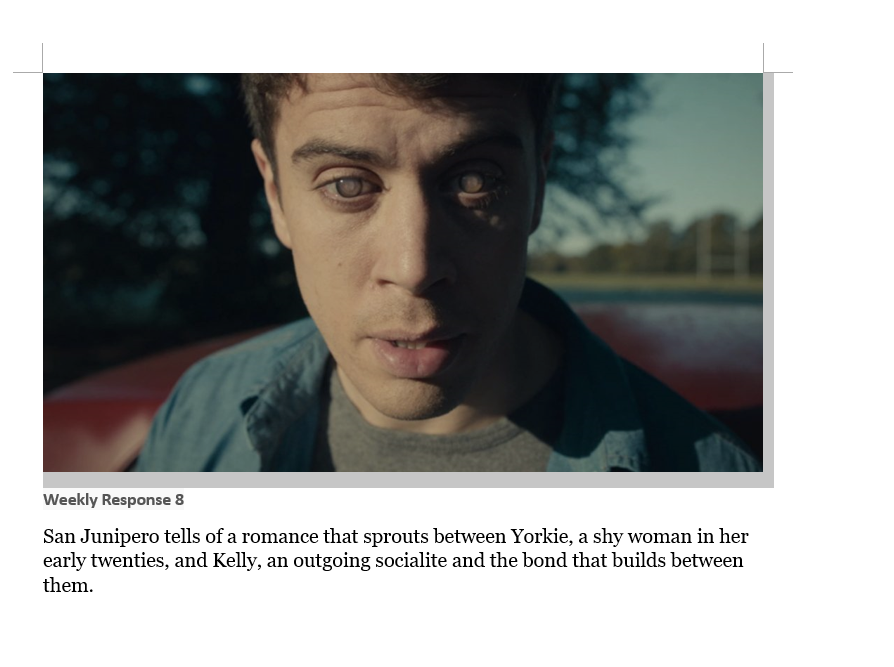Digital Reciept 8


Tuesdays 5:00-6:15pm | North Academic Center Library 1/301Y [email protected] | (646) 801-1462

what was your experience watching this episode like? how did you connect your personal experience with social media and community both in-person and online? what are your emotional responses to the narrative in the episode
While watching this episode of ‘ Black Mirror’ I started to develop goosebumps as I was fearing what might occur in the future. Technology is taking control of everything and how we come to perceive our peers and this can cause a lot of obstruction since we carry social media with us nowadays. On social media platforms, we depict a rather ‘ happy’ version of ourselves to the public while hiding our true identity and self. In this episode of Black Mirror, we can see how the protagonist carries herself based on her reputation and she heavily values other peoples ratings and opinions on every task she performs. I can connect to the protagonist in this scenario because when I first got Instagram, I also wanted to flex publicly and follow the persona of always being that sort of person. Its scary because this was altering my identity and the principles embedded in my since childhood. I also liked receiving comments and opinions of others based on my style of clothing or the actions I conduct. As a result, I made a resolution to limit myself on social media platforms like Instagram so I can connect with the real world.
1


These two episodes of Black Mirror really shows us how society may become one day. A society where we can relive our lives in a different way like in San Junipero and one where we have devices that record everything we do. I think that if a place like San Junipero were to really exist, humans would lose most of their drive to live. Why would you spend so much time and work on a life that could be relived in a better world? While it may be a chance for people who had their lives taken from them, like Yorkie who was disabled for a majority of her life, San Junipero was a place where she lived to be the person she couldn’t be in real life. For someone like me, if I had a chance at life again, I wouldn’t take it, in all honesty. Haven’t I suffered enough in this one life time with dealing with people I don’t want to ever see again but in this second life time, I’m stuck with them forever. Theres also no guarantee that in relaity, this San Junipero would be like “heaven”, meaning whose to say that everyone there is actually a “normal” person.
While in the episode, a somewhat similar idea but in a different fashion, the Grain. The ability for a small piece of technology to be implanted in ones brain and record their lives until the end of time seems to create more problems than it benefits. On one hand, you can see the breakdown of relationships because the idea of trust is brought into play, but with evidence now. When Fi cheated on Liam, there was proof of that. It also breaks the relationship between friends because of the same issue, trust. In my opinion, technology like this has yet to be needed to this extent. Maybe there are some benefits like how the Grain and warn one against driving while intoxicated, as seen in the episode, but are there really times in life that one has to re-watch the events they experienced before? To me, the answer is no and in relaity kind of scary as well.

Notes on Black Mirror Episodes
In “San Junipero,” two women named Kelly and Yorkie meet in a beachside town and form a special connection. As the episode unfolds, however, we learn this isn’t any simple tourist destination, but a virtual reality playground for the dead and terminally ill, where you’re assigned era-specific outfits and dope Barbie cars. As each creeps closer to death in the flesh, the two grapple with whether they should continue their relationship in the virtual world, to “pass over” rather than “pass away.” In other words, they live in a future where they can choose to either disappear, or have a replica of their human consciousness uploaded to the all-powerful cloud, existing in a fantasy land forever.
I don’t think it’s possible, because transferring our consciousness to a computer to be remotely feasible, not only would we need a computer capable of handling the computational load of our brains and of replicating the complicated web of neural connections, we’d also need a method for transferring the parts of our brains that make us who we are to a computer: our memories, our unique way of processing information, our personal quirks, all into a digital format. The things we don’t know about the brain vastly outnumber the things that we do know, making building an artificial brain a tough task.
